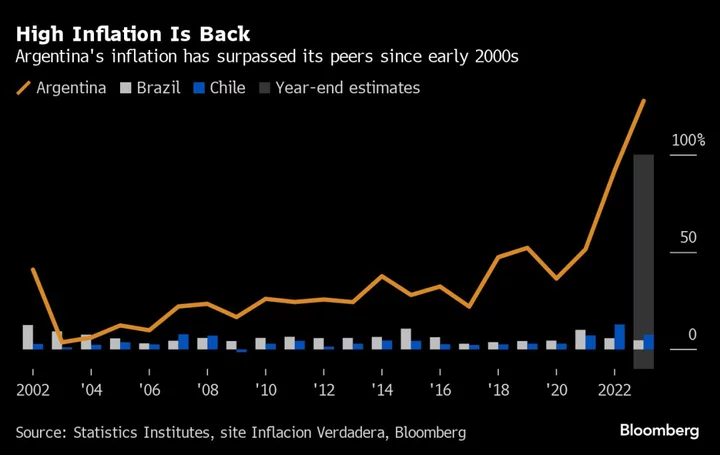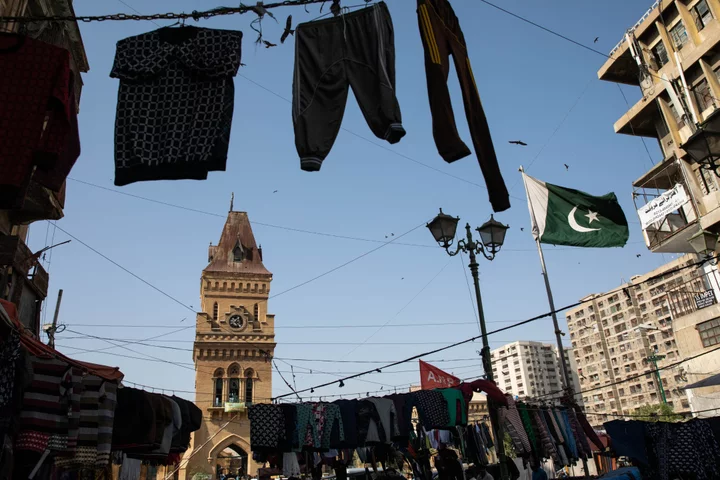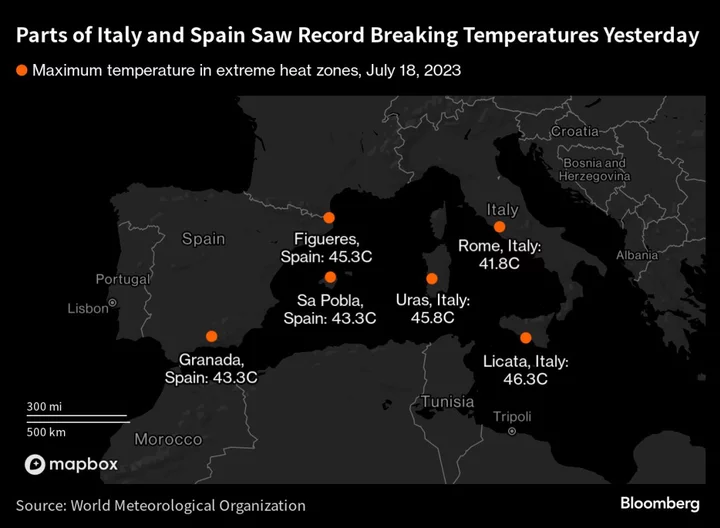Canadian consumers are tightening their purse strings, cementing a case for the Bank of Canada to hold interest rates steady next week.
Receipts for retailers were flat in September, according to an advance estimate from Statistics Canada released Friday. That followed a 0.1% decline a month earlier, which matched the median estimate from economists in a Bloomberg survey.
“Flat is soft,” Eric Lascelles, chief economist at Royal Bank of Canada’s asset management unit, said on BNN Bloomberg Television. With inflation and population growth running higher than normal, “you need retail sales growth of something like 0.4%, 0.5%, 0.6%, just to mean that the average Canadian bought as much stuff as the month before.”
“This is evidence that Canadian consumers are feeling a bit of pain and are really not enthusiastically driving the economy forward.”
Sales were down in six of nine subsectors, including car dealers, and furniture, electronics and appliances retailers. Excluding autos, retail sales rose 0.1%, versus expectations for a decrease of 0.1%.
In volume terms, retail sales dropped 0.7% in August.
The report shows Canadians are quickly rolling back their goods purchases as more households face mortgage payment renewals. It’s also in line with the Bank of Canada’s consumer survey earlier this week, which suggested Canadians who expect more adverse effects ahead from rate hikes are more likely to spend on discretionary items than buy items usually financed with loans, such as cars and appliances.
Governor Tiff Macklem and his officials kept borrowing costs at 5% in early September, saying recent evidence showed higher rates are working to slow the economy and consumption. Policymakers are widely expected to hold for the second straight meeting on Wednesday, counting on softening demand to translate into a slower rate of inflation in the coming months.
“Sluggish sales volumes suggest consumers are losing the wind in their sails, keeping the broader economy on track to stagnate through the rest of the year,” Shelly Kaushik, an economist at Bank of Montreal, said in a note to investors. “The soft report is yet one more reason to expect the Bank of Canada to keep policy rates on hold at next week’s meeting.”
Regionally, sales decreased in six of 10 provinces in August, with British Columbia seeing the largest provincial decrease. In Vancouver, sales were down 1.6%.
About 12% of Canadian retailers reported that their business activities in August had been affected by the strike at the ports in British Columbia, according to Statistics Canada.
The agency didn’t provide details on the September estimate, which was based on responses from 36.5% of companies surveyed.
“This report is another signpost that consumer strength is continuing to fade, with the advance estimate for September also implying a weak lead-in to the fourth quarter,” Katherine Judge, an economist at Canadian Imperial Bank of Commerce, said in a report to investors. “With domestic demand clearly responding to higher interest rates, the BOC likely won’t need to take rates any higher from here.”
--With assistance from Erik Hertzberg.
(Updates with economist comments from the third paragraph, adds chart.)
Author: Randy Thanthong-Knight









